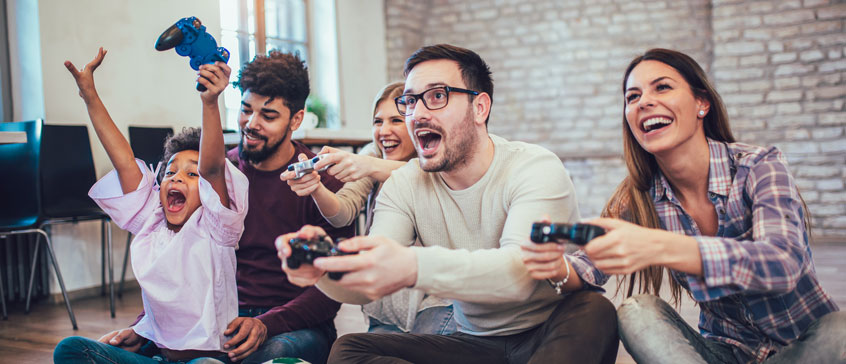Home / Business and Management / Can Video Games Make a Better World?
Can Video Games Make a Better World?

Written by David Ehret, instructor of So, You Want to Make a Video Game?
In her book Reality is Broken, video game designer Jane McGonigal investigates the reasons why so many people would rather be on an adventure in a virtual world than live in the real one. She says it’s because games offer four psychological benefits that are often lacking in the real world: satisfying work, the experience of being successful, social connection, and meaning. Well-designed games are, in effect, happiness engines.
Despite that, all too often people focus on the negative aspects of video games… a mind-numbing waste of time, or worse, violence and mayhem.
Yes, there are games like that, but more and more, games are exploring new territory. Like Gone Home, a first-person exploratory adventure game which breaks new ground in interactive story-telling. Or That Dragon, Cancer, an autobiographical game based on a true story of young boy’s struggles with cancer. The game is designed as a point-and-click adventure, with the player taking the roles of the boy’s parents.
Tree is a brilliant virtual reality game which allows the player to experience what it must be like to be a tree.
Never Alone is a puzzle-platformer that shares the stories of Iñupiaq culture as entertainment, but also introduces the player to Alaskan indigenous folklore.
Players can become the philosopher and naturalist, Henry David Thoreau, and experience his unique lifestyle in the game Walden.
The list goes on and on...
And games which go beyond mere entertainment often get serious attention. In fact, some of the games mentioned here have won awards at various events such as the annual G4C Festival. Games For Change (G4C) is a non-profit organization in New York that is “empowering game creators and social innovators to drive real-world impact through games.” And then there’s BAFTA, the British Academy of Film and Television Arts, who in 2018 introduced a new Game Beyond Entertainment category for the British Academy Games Awards.
McGonigal recommends that we apply what we’ve learned about the psychology of video games to the real world in order to make our jobs, our relationships, and our lives more meaningful. And she goes further, saying that we can use the same motivational psychology to solve serious real-world problems.
One such example can be found in a game called Fold It, a game designed by scientists where players fold virtual proteins into new and unique shapes, with the most promising shapes to be explored further for new uses in medicine. Called crowd-sourcing or citizen science, the payoff is real – results have already been published in Nature, one of the most prestigious science journals in the world.
Sea Hero Quest is another example. This is a mobile game where players are actually helping scientists with global research in dementia.
So, can video games help make a better world? You be the judge.
- Posted January 21, 2019
RELATED TOPICS: Computing and Information Systems
Visit Registration
2nd Floor | Continuing Studies Building University of Victoria Campus 3800 Finnerty Road | Victoria BC | CanadaTel 250-472-4747 | Email uvcsreg@uvic.ca
2025 © Continuing Studies at UVic
Legal Notices |
Sitemap

